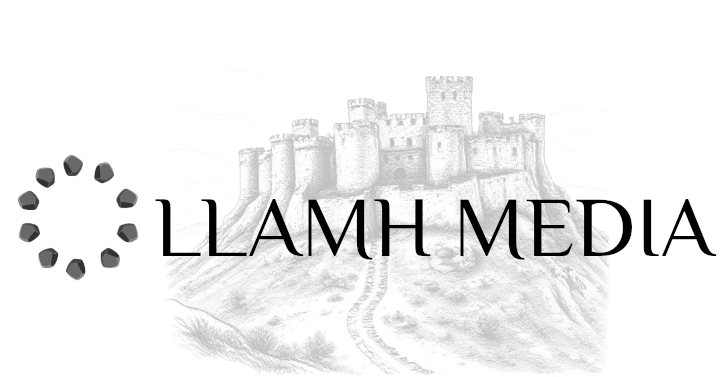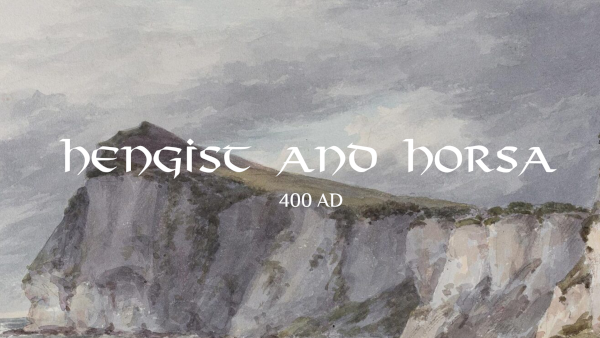The story of two brothers, Hengist and Horsa hailing from the continent, who would lead the Germanic people’s migration to the Island of Britain.
However, historians have speculated on the authenticity of Hengist and Horsa as historical figures. Though there is significant written, recorded evidence to suggest otherwise.
There are five attestations to the two brothers recorded across British, English, and Icelandic texts. These consist of the Ecclesiastical History of the English People, The Anglo-Saxon Chronicle, History of the Britons and the History of the Kings of Britain. All recorded by different authors.
Hengist and Horsa in Anglo Saxon Literature
The Ecclesiastical History of the English People is a documented history of the Christian Churches in England. While the Anglo-Saxon Chronicle is a history of the Anglo-Saxon peoples as an ethnic group. The Venerable Bede is credited with writing the Ecclesiastical History of the English People, while the Anglo-Saxon chronicle began to be compiled during the reign of Alfred the Great.
There is a brief mention of Hengist and Horsa within Bede’s work. Bede records that Hengist and Horsa were the first chieftains among the Angles, Saxons, and Jutes in England. They were descendants of Woden according to the medieval scholar.
The Anglo-Saxon chronicle records that King Vortigern invited Hengist and Horsa to Britain. The British King Vortigern sought their assistance in subduing the raiding Picts from the North. The new arrivals were successful, and they sent a message to the continent describing “the worthlessness of the Britons, and the richness of the land”. Soon after, more Angles, Saxons and Jutes would arrive on British shore. Hengist and Horsa, in the year 455 declare war on their hosts. Horsa would die in the battle against Vortigern, while Hengist would usurp the British throne. The native Britons “fled from the English like fire”.
History of the Britons
The 9th century History of the Britons, which has been attributed to the Briton Nennius has a rather different perspective on the events that took place. During the reign of Vortigern, three exiled vessels from the European continent landed on British shore. Describing the men on board “…they are descendants of one of their idols, and whom, blinded by some demon they worshipped according to the custom of the heathen”. However, King Vortigern received his hosts in a hospitable way.
After some time, King Vortigern promised the new arrivals supplies and provisions in return for assistance defending the Kingdom against the invading Picts. The Germanic tribes would then increase in numbers rendering the natives unable to withhold their agreement. The Britons advised Hengist and Horsa to return to Saxony. Hengist suggested they stay, he offered his daughter in marriage to King Vortigern solidifying his presence in Britain. Hengist offered King Vortigern a further offer of a truce between the two groups. King Vortigern accepted the proposal and prepared a feast. Hengist and his men attended the feast, however they concealed knives beneath their feet. The feast commenced and Hengist declared “Get your knives”. The Germanic tribes then massacred their hosts and usurped power on the Island of Britain.
Prose Edda
Hengist is briefly mentioned within the first book of the Prose Edda, written by the Icelander Snorri Sturluson in the 13th century. An account of Germanic history is given, including that Woden put three of his sons in charge of Saxony. The ruler of eastern Saxony was Veggdegg, one of whose sons was Vitrgils, the father of Vitt, the father of Hengist.

